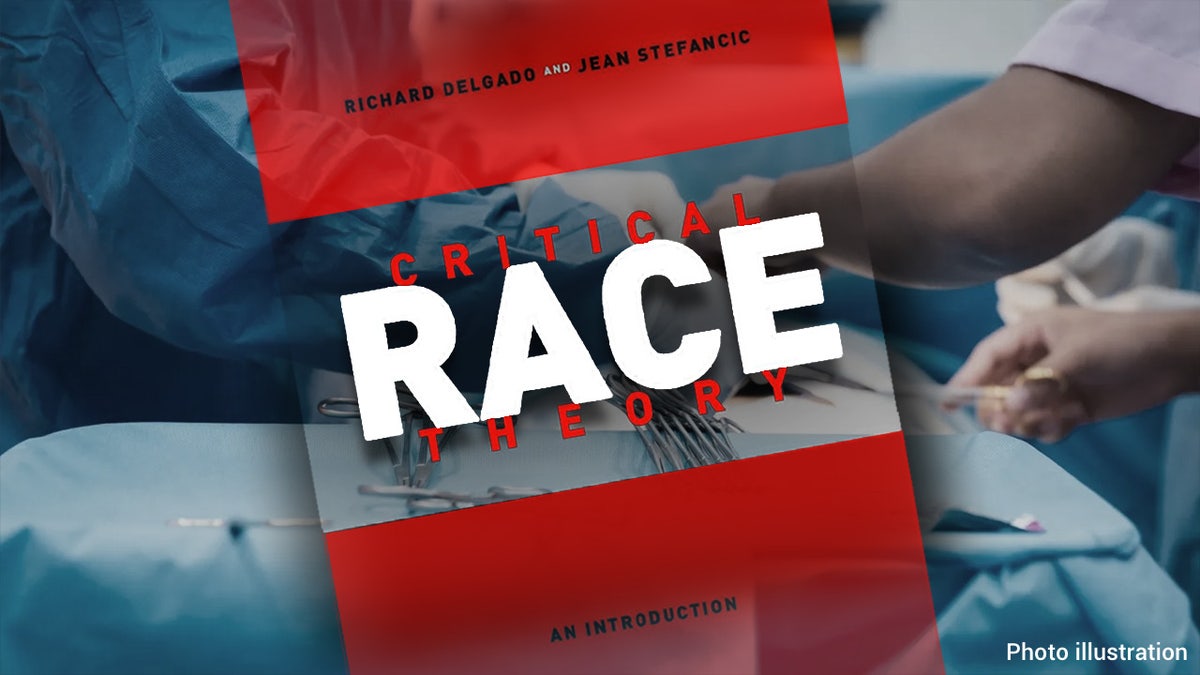‘Anti-racist’ agenda makes its way into healthcare with calls for treatment based on race
Author Douglas Murray reacts to Harvard instructors’ calls to give preferential medical treatment based on race.
Former Harvard Medical School Dean Jeffrey Flier has spoken out against the current implementation of "anti-racism" policies in healthcare training and suggested "potentially harmful" versions of social justice threaten to compromise patient care.
In an essay published by The Free Press this week, Flier recounted his initial interest in working with colleagues to combat racism and bias in medicine and his eagerness to read a 2020 paper from his alma mater's (Mt. Sinai School of Medicine) educational leaders addressing such problems.
He was disappointed to find that the final publication lacked significant analysis and instead offered "dramatic" and "unsupported" generalizations about inherent racism in medical education and practice.
Flier concluded the paper denigrated people's accomplishments and focused on the race of physicians and patients rather than a commitment to providing exceptional and equal care for all.

Jeffrey S. Flier became the 21st Dean of the Faculty of Medicine at Harvard University on September 1, 2007. His term as Dean ended in 2016 after nine years. (Harvard Medical School/Screenshot/iStock)
Last January, the former dean logged on to Zoom for Mount Sinai's "Chats for Change Workshop," where he said he was immediately inundated with explanations about "Whiteness" and "White supremacy." He said the administrator leading the session continued by asking questions that "undermined the necessity of collecting unbiased evidence."
According to his essay, questions included: "Why is anything that is documented or published valued more highly than other forms of knowledge and communication?" and "Are clinical trials more valuable than patient's clinical experiences?"
"The session failed to stimulate productive discussion about racism and responses to it that might improve health or enable transformative change. Instead, it advanced a highly questionable ideology about White supremacy and its relationship to modern medicine," Flier said.
Things only degraded in a second online workshop titled "Anti-Racist Transformation in Medical Education," he claimed. When Flier suggested the term "anti-racist," the school's Racism and Bias Initiative discussion leader responded it was simply a term for opposition to racism and "anyone with a terminal degree should know what." The leader also said the program was not about "encouraging pointless discussion" about the term's meaning.

Critical Race theory holds that America is systemically racist and that people have privilege on the basis of their skin color. (Fox News Digital)
Flier disagreed and stressed that unclear terms can lead to unclear solutions.
"If we can't agree on what race, racism, diversity, inclusion, and equity actually mean, the initiatives based on these terms are likely to be ineffective," he said. "But the message of the sessions I attended was clear: much like a devotee accepting holy writ, we were to forgo questions and simply embrace the doctrine, even without knowing what it means."
Following the anti-racism workshop, Flier submitted a paper to Academic Medicine which outlined some of his concerns. It was rejected two days later with no peer review and without explanation.
The former Harvard Medical School dean noted that in 2021, the institution announced a task force to review racism in medical education and create responses to mitigate harm. While the school revealed a 72-page report had been completed, it was never made public.
Flier found this surprising. During his time as dean, report conclusions were published by appointed committees and faculty would later have an opportunity via meetings and town halls.

A MaineHealth vice president, Ryan Polly, previously came under fire for discussing "Whiteness" in medicine, a term rooted in critical race theory. (Fox News Digital)
"In conversations with faculty members at both schools, concerns about the approach to anti-racism, not unique to me, are typically met with requests to discuss the topic 'off the record' and without attribution," he said. "Faculty concerned about the ideological capture of anti-racism initiatives are reluctant to express this openly for fear they will be labeled insufficiently anti-racist, causing reputational damage they prefer not to risk."
Flier surmised that students and trainees were being imprinted with "contestable ideological notions" and bringing less rigor to issues of racism versus other serious topics.
The goal, he said, should not be "performative discussions" and "empty virtue signaling" but better healthcare outcomes for all people. He also warned that a drift from evidence-based practices towards "ideological dogma" would only lead to graduates proficient in "social justice jargon" rather than expert care delivery.
CLICK HERE TO GET THE FOX NEWS APP
"Sadly, I fear that diluting rigor and precision with ideological agendas will degrade the quality of medical education," he added. "In a rush to embed vague, contestable, and potentially harmful versions of social justice into medical education, we risk compromising the very foundation of medical training, and ultimately, patient care."
In a statement to Fox News Digital, Harvard Medical School said it was "reassuring" that "both critics and supporters of current approaches to medical education agree that we have made progress and yet still have more work to do."
"Harvard Medical School believes that anti-racism initiatives help bolster, not undermine, excellence in medical education and clinical care. The gross disparities in health outcomes and access to care are well-documented and necessitate that medical schools train future physicians to not only provide excellent, compassionate care but also to advocate for health equity and well-being for all," the school added.
Editors Note: This piece has been updated to include a response from Harvard Medical School.











































